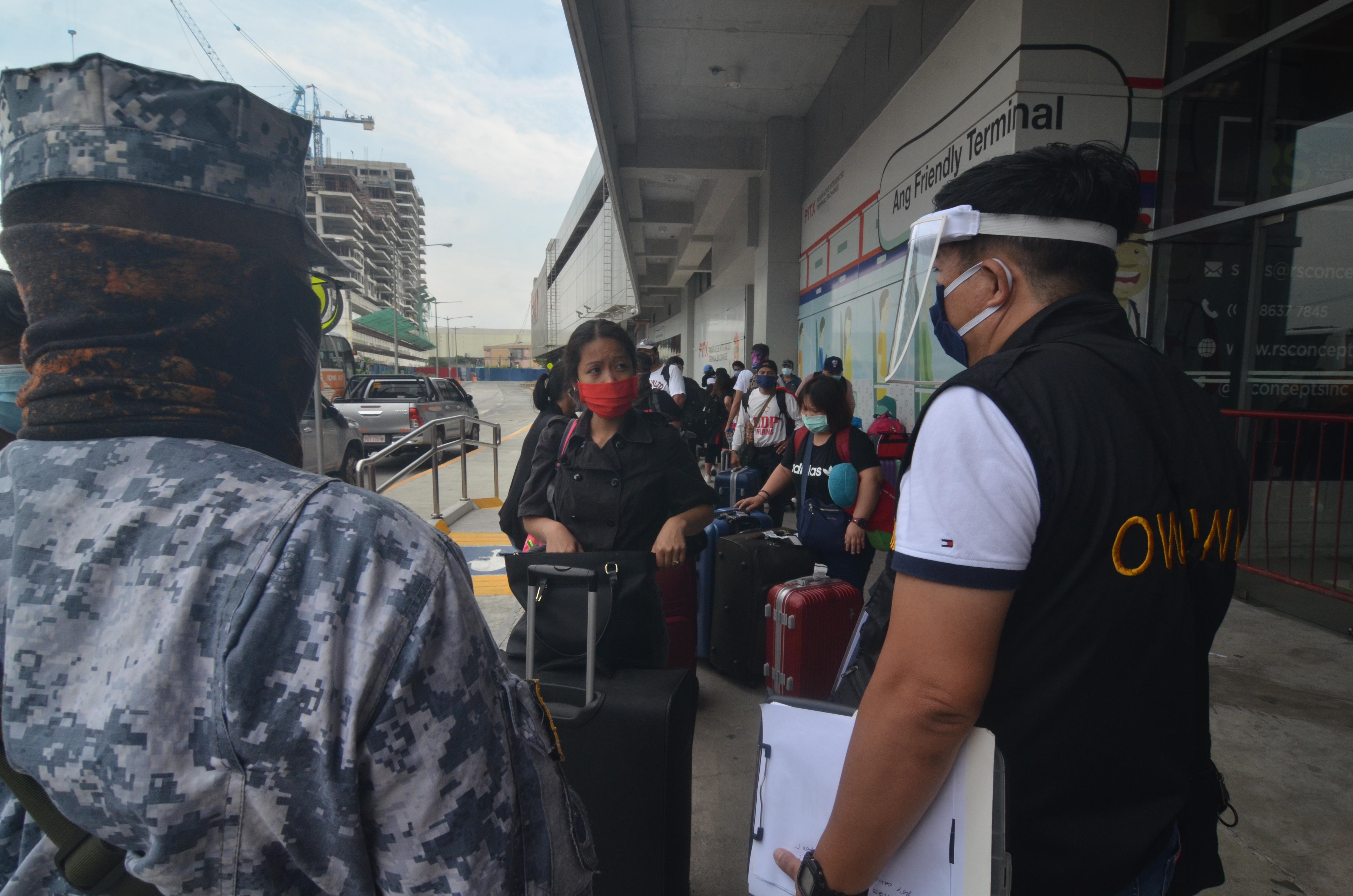News
Undocumented OFWs covered by livelihood aid programs

FILE: Personnel from the Philippine Coast Guard (PCG) and the Overseas Workers Welfare Administration (OWWA) assist overseas Filipino workers heading home to their respective provinces during a send-off at the Parañaque Integrated Terminal Exchange on Monday (May 25, 2020). (PNA photo by Avito C. Dalan)
MANILA – The chief of the National Reintegration Center for OFWs (NRCO) on Friday said undocumented overseas Filipino workers (OFWs) who were displaced by the coronavirus disease 2019 (Covid-19) are covered by the livelihood assistance being provided by the government.
“We have programs for all returning OFWs that they may avail at NRCO. Of course, if you are an OWWA (Overseas Workers Welfare Administration) member, you have the privilege and advantage. Nonetheless, if you are undocumented, you can also avail of the livelihood, training on entrepreneurship and employment facilitation,” said Roel Martin, NRCO OIC-director in a Laging Handa briefing.
He added that the livelihood program will be offered to the OFWs depending on their classification.
“They will be trained to help them be successful on what business they would like to pursue,” the NRCO chief added.
He said those who would like to stay in the country, they are offering loan assistance for additional capital if they want to start their own business.
“We also have our loan assistance program together with the Landbank of the Philippines (LBP), where they can apply for additional capital for the business they want to put up.
Applicants may visit our Regional Welfare Offices (RWOs), we will help them to come up with a proposal to be assessed by LBP,” Martin added.
Aside from livelihood assistance, he said the displaced OFWs are also given cash aid under the Department of Labor and Employment-Abot Kamay ang Pagtulong (DOLE-AKAP) program.
“As part of the reintegration program, a one-time cash aid of PHP10,000 or USD200 is still ongoing and many are applying for the program,” Martin added.
Based on latest data from the DOLE’s overseas offices and OWWA, a total of 240,583 requests for assistance under AKAP program have been approved, with 203,585 OFWs already receiving the emergency aid.
At the same time, Martin reported that over 90,000 OFWs who were repatriated have joined their families in their respective provinces.
“Based on the data we gathered more or less around 90,000 are not in the country, most of them are already in their province. This is courtesy by the repatriation program of the OWWA,” he added.





















